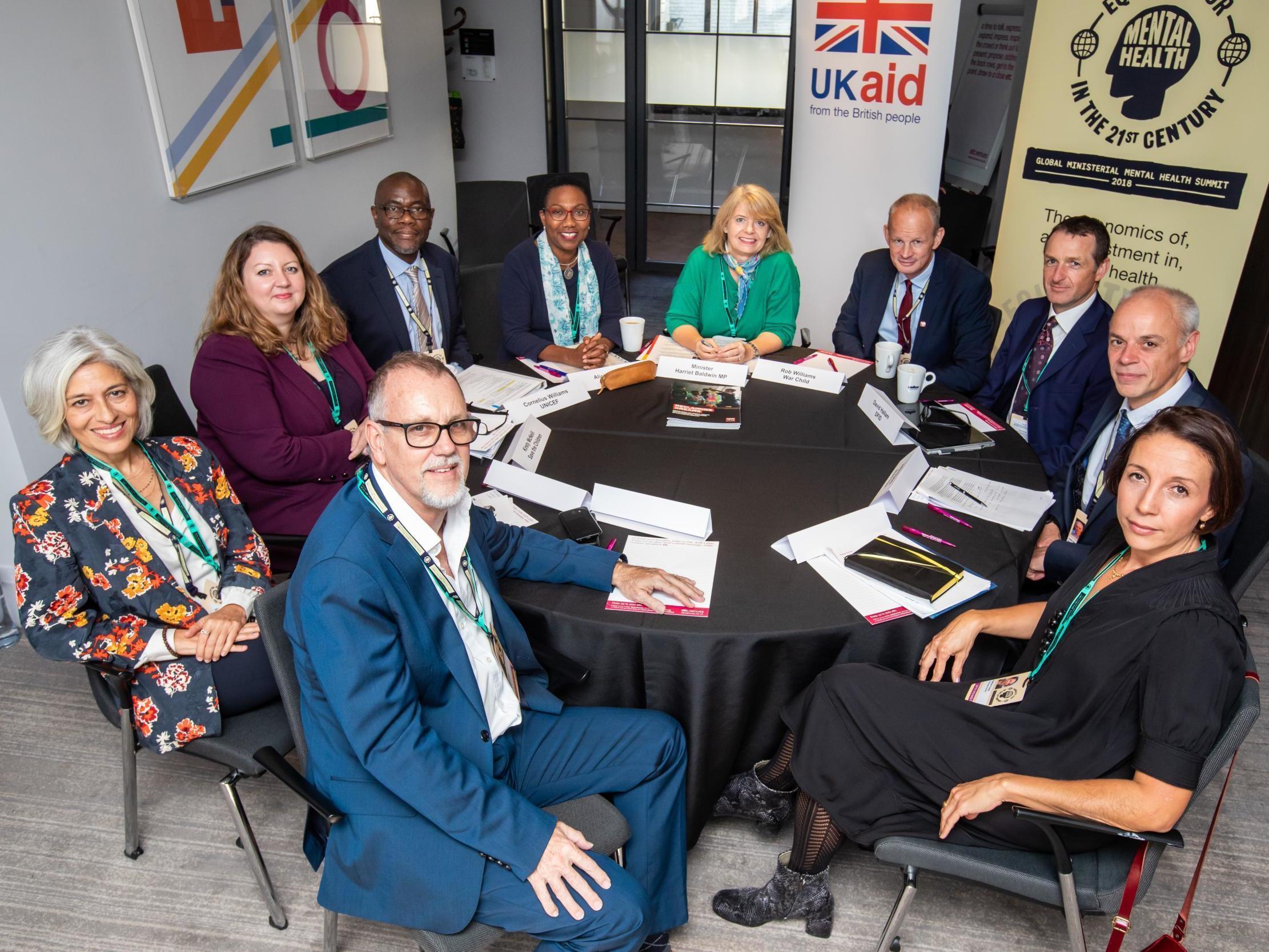Learn to Live: Summit gives new hope to young war zone victims
As part of the Global Mental Health Summit, experts are discussing how best to support children caught up in war

Your support helps us to tell the story
From reproductive rights to climate change to Big Tech, The Independent is on the ground when the story is developing. Whether it's investigating the financials of Elon Musk's pro-Trump PAC or producing our latest documentary, 'The A Word', which shines a light on the American women fighting for reproductive rights, we know how important it is to parse out the facts from the messaging.
At such a critical moment in US history, we need reporters on the ground. Your donation allows us to keep sending journalists to speak to both sides of the story.
The Independent is trusted by Americans across the entire political spectrum. And unlike many other quality news outlets, we choose not to lock Americans out of our reporting and analysis with paywalls. We believe quality journalism should be available to everyone, paid for by those who can afford it.
Your support makes all the difference.Experts on the impact of war on children held a vital meeting to discuss how to address issues raised by our Learn to Live campaign.
Leaders from children’s rights charities including War Child met with the the Department for International Development to find ways of improving the mental health of youngsters caught up in conflict zones.
The round table event was held as part of the Global Mental Health Summit in Westminster. Representatives from Unicef, Save the Children and World Vision were among those attending.
It comes as The Independent’s campaign continues to highlight the devastating impact war has on children.
As part of the project we have “twinned” London schools with those in war zones to help children learn about each other’s lives, and are encouraging other schools to do the same.
Hadeel, a project manager for War Child in Jordan invited to the meeting, said the Learn to Live campaign has the potential to improve the mental health of children stuck in refugee camps by showing them they have not been forgotten.
She added: “It helps them connect with each other and have new experiences and learn about the experiences of children from other areas. Children in Jordan were excited they were able to share their stories and where they come from with London schoolchildren.
“When you empower children and allow them to express themselves you see the difference immediately.”
Africa minister Harriett Baldwin pledged to place a greater focus on mental health and psychosocial support in DfID’s education work.
She also pledged £2m to the Humanity and Inclusion charity, which is running a project in South Sudan to improve mental health and give psychosocial support to victims of gender-based violence.
It came after DfID yesterday announced up to £500,000 in matchfunding to War Child to support the charity’s work with children who had suffered in conflict zones.
A Syrian refugee called Fatima sent a video message urging the delegates to step up their efforts. Fatima escaped Syria on foot and arrived at the Zaatari refugee camp in Jordan in 2012 with her parents and others of her family.
It was a traumatic experience, but with the help of a school in the camp and support services she became stronger. She said: “Since I came to Jordan I have experienced feelings of loss, displacement and estrangement and I thought my dreams were long gone. Like many other Syrian refugees I have cried for the days that will never return.”
She added that “feelings of loneliness, depression and introversion seemed to control me” but going to the camp school helped her build friendships and improved her mental health.
Rob Williams, chairman of War Child, said the Learn to Live campaign “has been really massive. It is being read and understood and tweeted and shared and people really understand it.”
Join our commenting forum
Join thought-provoking conversations, follow other Independent readers and see their replies
Comments